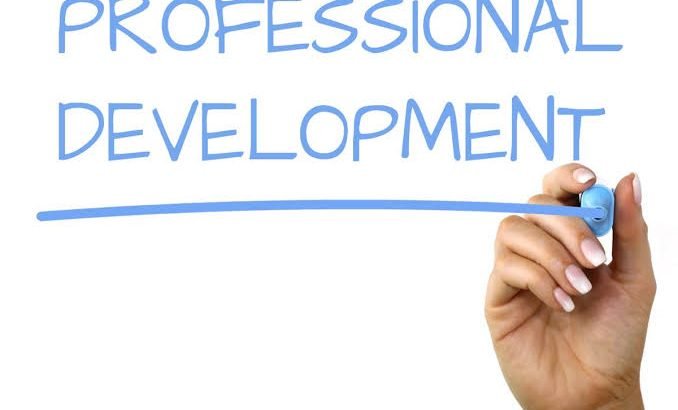How Education Can Help Drive Sustainable Community Development
Education is a powerful tool that can help drive sustainable community development. This blog article will explore how Education can help create healthier, happier communities. How investing in Education can lead to real, long-term change. We will also discuss the challenges of bringing about sustainable development through Education and how organizations work to overcome them.
Introduction to Sustainable Community Development
Sustainable community development is creating and maintaining healthy, livable communities. It is based on social, economic, and environmental sustainability principles.
Sustainable community development aims to create a quality of life for all residents, now and in the future. This includes providing access to basic needs like food, water, shelter, and healthcare; promoting economic opportunity; protecting the environment; and fostering social cohesion.
Education plays a critical role in sustainable community development. By providing people with the knowledge and skills they need to participate in the economy, Education can help drive economic growth. And by teaching people about environmental stewardship, Education can help reduce the negative impacts on the environment. Finally, Education can help build strong and vibrant communities by promoting social inclusion and respect for diversity.
The Role of Education in Sustainable Community Development
Education is critical to sustainable community development. It helps people understand the causes and effects of social, economic, and environmental problems and provides the skills needed to solve them. Education also helps people develop the values, attitudes, and behaviors necessary for sustainable living.
Sustainable community development requires the active participation of educated citizens. Educated citizens are more likely to be engaged in their communities and to have the knowledge and skills necessary to address local problems. They are also more likely to vote, volunteer, and participate in other civic activities. In short, Education is essential for creating thriving communities.
There are many ways that Education can help drive sustainable community development. For example, educational institutions can provide opportunities for students to learn about sustainability issues and become involved in local projects. Faculty members can use their expertise to help solve community problems. And educational institutions can partner with businesses and organizations to create internship and job opportunities for students interested in sustainability work.
By working together, educators, students, businesses, and community leaders can build the foundation for a more sustainable future.
How Education Can Enhance Job Opportunities and Income Generation
How it Can Enhance Job Opportunities and Income Generation
Education can play a crucial role in sustainable community development by enhancing job opportunities and income generation. By preparing individuals for the workforce and providing them with the skills and knowledge needed to be successful, Education can help drive economic growth and stability. Additionally, It can help reduce poverty and inequality, two key drivers of community instability.
By increasing access to quality education, communities can provide their residents with the opportunity to improve their economic standing. In turn, this can lead to increased tax revenue, which can be used to fund vital services and infrastructure projects. Moreover, educated citizens are more likely to participate in civic activities and give back to their communities. Investing in Education is essential for developing robust and sustainable communities.
How It Can Help Improve Access to Resources
Education can help improve access to resources in several ways. Firstly, It can help individuals learn about and gain awareness of the resources available within their community. Secondly, Education can help equip individuals with the skills and knowledge necessary to use and navigate these resources effectively. Finally, It can allow individuals to connect with others who may be able to provide them with additional help or support.
When it comes to sustainability, access to resources is critical. It can play a decisive role in helping to ensure that all people have the information and skills they need to identify and use the resources available to them. This, in turn, can help communities become more sustainable by ensuring that everyone has an equal opportunity to participate in efforts to improve conditions and create positive change.
How it Promotes Environmental Sustainability
One of the essential things Education can do to promote environmental sustainability is to instill in students a sense of stewardship for the planet. When young people understand that they are responsible for caring for the earth and its resources, they are more likely to make environmentally responsible choices in their daily lives. Additionally, It can help people understand the interconnectedness of humans and the natural world and how our actions can impact ecosystems. With this knowledge, people can be empowered to take action to protect the environment.
In addition to raising awareness about environmental issues, Education can also provide practical skills and knowledge to help people live more sustainably. For example, learning about energy efficiency and renewable energy sources can help people save money and reduce their carbon footprints. Education can also help people develop gardening, recycling, and waste reduction skills that can lessen our impact on the planet.
Ultimately, Education is essential for creating a sustainable future for our planet. By increasing environmental awareness and providing practical skills for sustainable living; we can all work together to create a healthier, happier world for future generations.
How Education Contributes to Social and Political Participation
Education can play a significant role in sustainable community development. Education can help create more just, equitable, and sustainable communities by preparing individuals for social and political participation.
Individuals can develop the knowledge, skills, and values necessary for effective social and political participation through Education. They can learn about the issues facing their community and the world and gain the critical thinking skills needed to identify potential solutions. Education can also help instill a sense of civic responsibility and empower individuals to take action on behalf of their community.
In addition to preparing individuals for social and political participation, Education can also help build the capacity of communities as a whole. By supporting lifelong learning opportunities and providing access to quality education, communities can develop the human capital needed to address challenges and spur economic growth. It can also help strengthen social cohesion and promote tolerance and understanding among different groups.
While Education alone cannot drive sustainable community development, it is an essential part of any comprehensive strategy. Education can help create more just, equitable, and sustainable societies by preparing individuals for social and political participation and building community capacity.
Examples of Successful Educational Initiatives for Sustainable Community Development
There are many ways that it can help drive sustainable community development. One way is by providing opportunities for people to learn about and engage in sustainable practices. This can be done through educational initiatives such as environmental education programs, sustainability courses, and community garden projects.
Environmental education programs can teach people about the importance of protecting the environment and how to do so through sustainable practices. Sustainability courses can give students the skills and knowledge needed to develop and implement sustainability plans in their communities. Community garden projects can engage community members in growing their food while promoting social interaction and environmental stewardship.
These are just a few successful educational initiatives that can help drive sustainable community development. By providing opportunities for people to learn about and engage in sustainable practices, we can empower individuals and communities to make positive changes in the world around them.
Conclusion
Education is an essential ingredient in creating sustainable communities.
By ensuring that all people have access to it. We can ensure that our communities become more resilient and better able to address the challenges of today and tomorrow what’s more, through education initiatives such as job training programs, mentorship opportunities, and support for entrepreneurship. We can help individuals reach their full potential while contributing to a healthier society. Any community can benefit from its effects on sustainability with suitable investments- financially and otherwise.
Comments (2)
You must be logged in to post a comment.




[…] programs or tuition reimbursement shows that a company values its employees’ continued education and professional development. Additionally, cross-training employees on different teams or projects can help broaden their […]
[…] energy sources are also beneficial for local communities. By investing in renewable energy, communities can develop local jobs and create new economic opportunities. This can help to boost the economy and provide a […]